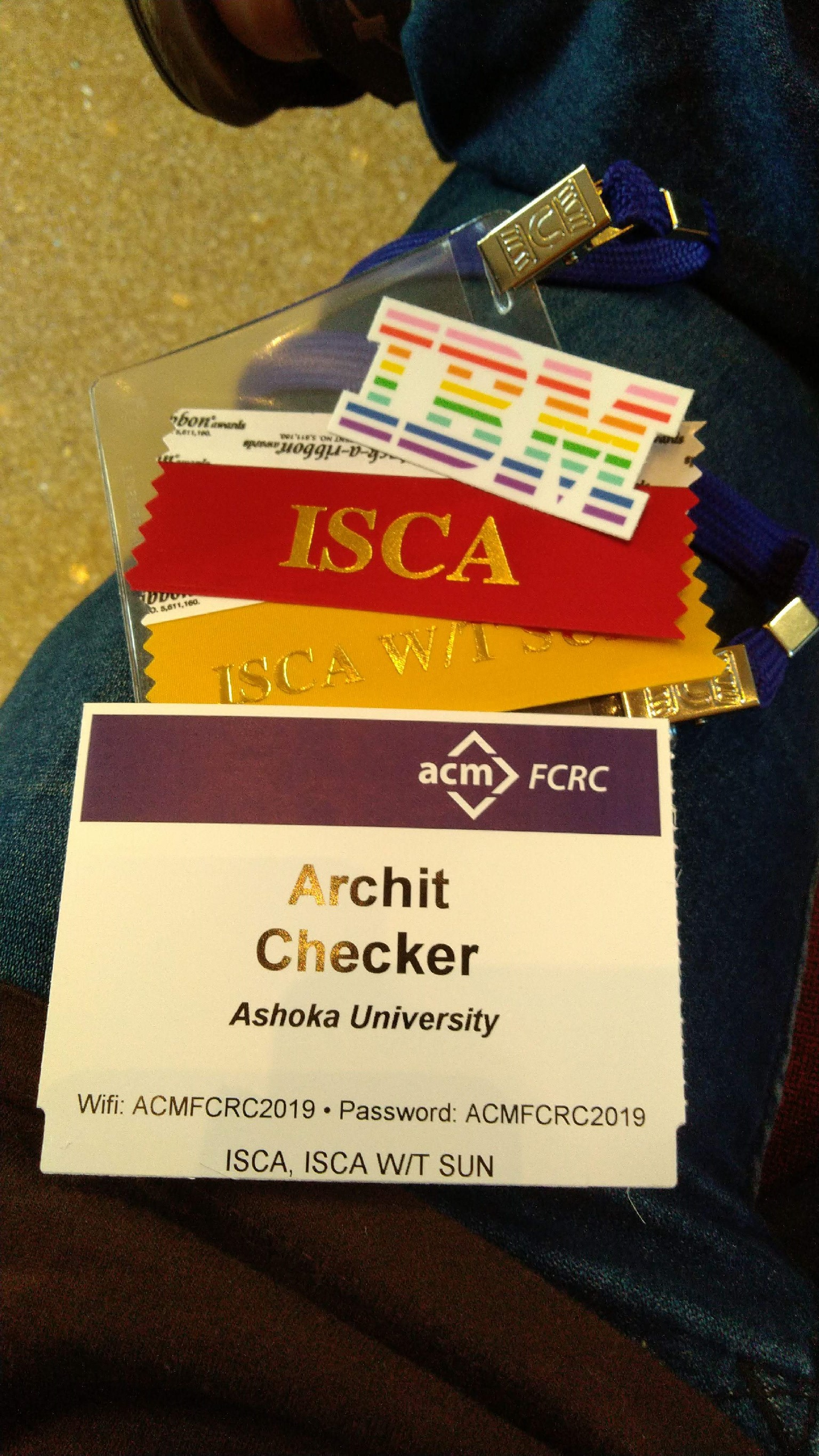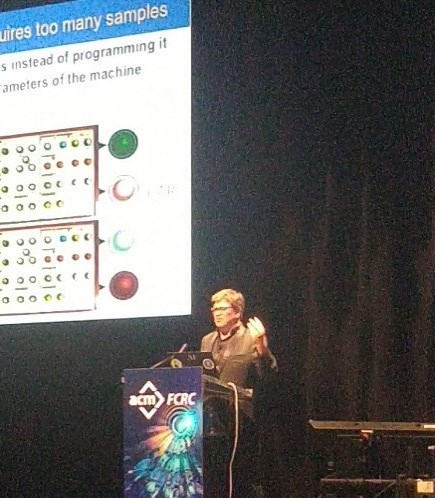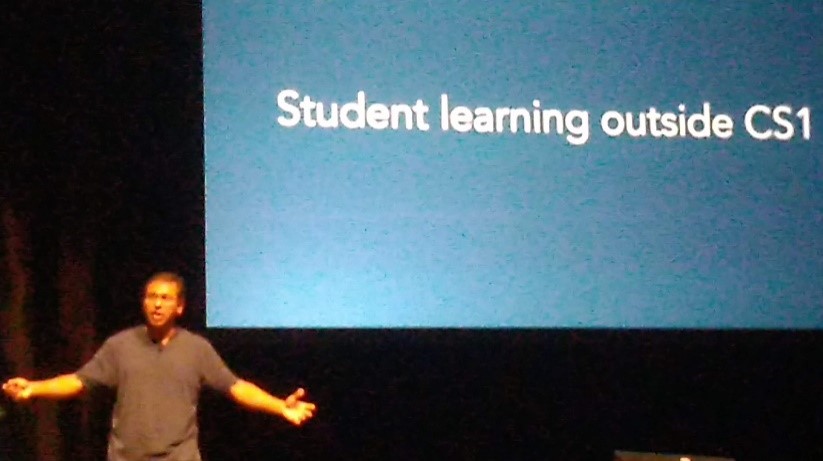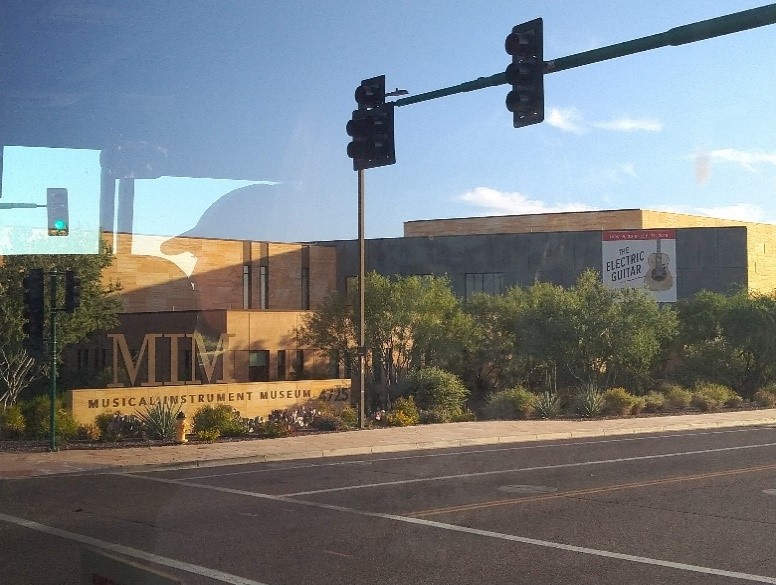My ISCA 2019 Experience
This year’s International Symposium on Computer Architecture (ISCA 19) hosted the very first
iteration of the uArch Workshop. As the name suggests, this workshop is meant to be a mentoring
workshop for late stage undergraduates and new master’s students, who are aiming to pursue graduate
studies in Computer Architecture.
The uArch workshop is a fantastic opportunity to interact with the biggest names in computer
architecture, network with academics and industry workers, and to understand what a career in
Computer Architecture research entails. The workshop provides funding to all selected
students. This funding includes all conference fees, meals, accommodation, and travel funding
up to 500 USD.
As part of the program, the students not only get to attend the one full day dedicated to the
workshop itself, but also take part in the main ISCA program.
My experience visiting ISCA this year was beyond fantastic.
 Day 1
Day 1
The conference took place at the Phoenix Convention Center, in Phoenix, Arizona, USA. The
workshop was partly sponsored by Microsoft, and one day before the event, Microsoft invited
all the students to an informal networking dinner where we were introduced to various people
in Architecture, including the ISCA general chair Dr. Srilatha Mane, and the workshop chairs Dr.
Lena Olson and Dr. Newsha Ardalani. Throughout my time at ISCA, the organizers were
extremely helpful and they were the most important resource when it came to interacting with
new people. If I was too hesitant to approach someone, Lena or Newsha always helped in
introducing me to them.
The workshop had 6 sessions in total followed by a networking event.
The first session focused on networking and we got some great tips on interacting with people
at conferences. I really came to appreciate the value of this session by the end of the
conference because I realized that the conference was more about networking and discussions
about individual research rather than the presentations for the accepted papers in ISCA 19.
The second session was a talk titled “What I wish I knew my first few years of grad school,” by
Prof. Jason Mars from the University of Michigan. This talk was by far one of the most engaging
talks I have encountered in my life. Jason communicated his ideas very effectively. Although he
did present some controversial opinions such as – Working on a different topic after submitting
a paper, or submitting to top tier conferences only, he also gave some solid advice about what
it takes to publish a paper at a top conference.
Prof. Mary Hall from the University of Utah was the third speaker and she spoke on the topic
“How to be a great researcher.” She talked about the importance of team work and
collaborations, and identified curiosity and persistence as the key traits in order to be a
successful researcher.
This was followed by a panel discussion on the topic “How you made decisions about your
career?” I believe this was probably the most helpful session out of all the others when it comes
to understanding what one must expect out of graduate school or a job in the industry. There
were some very good tips given to us about applying to PhD programs and there was in-depth
discussion about the admission process, the PhD Journey, and the life after. One great thing
about this panel was that it had an equal representation from both academia and industry.
Moreover, the panelists were also at different points in their career paths which helped us gain
both – insights that come with experience, and about contemporary practices.
The next session was a talk on the history of Computer Architecture research by Turing Award
Winner, Prof. David Patterson. Prof. Patterson is the co-author of the most widely used
Computer Systems textbooks and it was very inspiring to see him there in person.
The last session of the uArch workshop was by Dr. Karin Strauss from Microsoft Research, and
her presentation was about interdisciplinary research in Computer Architecture. She talked
about a research project that Microsoft is currently working on with the University of
Washington which involves working with DNA sequences to use them as storage.
The workshop ended there, and we got to interact with various faculty after it as part of the
informal networking session.
One important part of the ISCA experience was the “Meet a Senior Architect” Program where
we got to meet a mentor in a one on one session. I was really fortunate to have been assigned
Prof. Daniel Jimenez, who came up with the original perceptron-based branch predictor and is
an eminent personality in Computer Architecture. I greatly appreciate the time he gave me and
I got some very good tips regarding research in general, and grad school admissions from him.
I consider myself really fortunate for attending ISCA this year, especially due to
the fact that it was organized as part of the ACM FCRC. The FCRC is an event that occurs
once in every 4 years (I found out only after attending!) and since multiple workshops happen
parallelly as part of FCRC, the scale of the event was even bigger than it usually is. This unique
opportunity allowed us to attend the FCRC Plenary sessions – which are talks by eminent
personalities in Computer Science on a diverse set of topics.
I attended a total of four Plenary Talks.
 Dr. Yann LeCun
Dr. Yann LeCun
The first one was the Turing Lecture by Dr. Yann LeCun and Dr. Geoffrey Hinton. This plenary
talk was very humorous and Dr. Hinton gave us a piece of advice – Friends may come and go,
but enemies accumulate. This was immediately followed by a slide on how (and why) his papers
were rejected by conference reviewers as late as 2009 and some of the reasons were quite
hilarious.
Another great plenary talk was the one by Prof. Shriram Krishnamurthy from Brown University.
 Prof. Shriram Krishnamurthy
Prof. Shriram Krishnamurthy
The talk revolved around how Computer Scientists can make computer science education more
accessible to students. What was really amazing about the talk, was how effectively he communicated
his ideas. It also made me realize the importance of good slides. The presentation was so well done that
it felt like a performance – every step carefully choreographed.
Amidst the various main sessions of ISCA and lots of networking, there were some other events
of interest – such as the business meeting by SIGARCH and the ISCA Awards Luncheon. The
business meeting was to discuss logistical matters – such as the amount of money
spent/earned, the criteria for paper selection, etc. The Awards Luncheon was an event where
key contributions to Computer Architecture were recognized.
This year’s Eckert-Mauchly Award was presented to Prof. Mark Hill from University of
Wisconsin-Madison. Prof. Mark Hill is famously known for coming up with the 3Cs model of
cache misses. His acceptance speech was one of the most inspiring talks for ISCA. Not only did
he give great advice regarding research, but the way he talked about his career reflected his
greatness and I am sure that it motivated a lot of young researchers.
 The MiM
The MiM
It has been rightly said that “All work and no play makes Jack a dull boy.” The last event for ISCA
was an excursion to the Musical Instrument Museum in Phoenix and with that, the 4-day event
came to an end.
Attending ISCA 2019 turned out to be a life changing experience for me. I had a lot of fun, got
to network with lots of really great people, met some of the biggest personalities in Computer
Architecture, and got a lot of tips regarding grad school and a career in this field. The workshop
accomplished the goals it set out to achieve, and I have much more clarity about my future
plans.
I am very thankful to the organizers for starting this great initiative and executing it in a spot-on
manner. I would also like to acknowledge the contributions of my Professor, Dr. Manu Awasthi
who was instrumental in getting me interested in computer architecture.